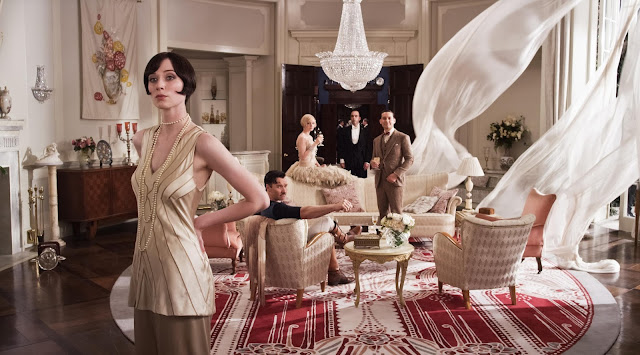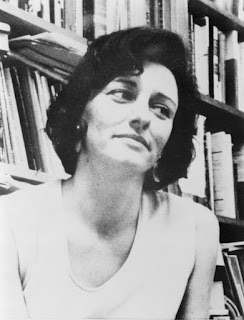The Great Gatsby: Biographical Criticism
 |
| F.Scott Fitzgerlad |
Biographical Criticism:
Biographical Criticism is a form of literary criticism which analyses a writer's biography to show the connection between the author's life and their works of literature. When studying the authors biography, you can begin to see similarities between the works produced and the life the author has lived. Not only this, but you can also see the parallel of created scenarios in their literature and their own life, proving that many author's books have a self-biography nature. In summary, biographical criticism is merely an extension of contextual criticism that focuses solely around the writer's experiences and how these relate to their literary works.
How does this apply to The Great Gatsby?
Relationships:
There are many similarities between F.Scott Fitzgerald's life and what is written about during The Great Gatsby. Firstly, Daisy is a character whom Gatsby is seen fantasising over and longing after for so long during the novel, yet she is married to another man named Tom Buchanan. It is made known in the book that Gatsby and Daisy had been together a while before the book is set and that they were in an extremely loving relationship, they were both infatuated. However, as the story develops we hear that when Gatsby went to war (which Fitzgerlad also does indicating a possible further connection between the two) he returns to find that Daisy was engaged to Buchanan, due to his wealth, security and dominance. On the day of Daisy's wedding to Tom she receives a letter from Gatsby and although the content of the letter is unknown it greatly disturbs and upsets Daisy and makes her want to 'change her mind' regarding her marriage to Tom. Similarly, Fitzgerlad met Ginevra King in his home town of St. Paul in Minnesota while he was a student at Princeton and she was only sixteen years old. She was quickly said to become the love of his life and the muse for most of his stories. They would correspond through letters and hardly ever saw each other in person. Fitzgerlad claimed that he loved Ginevra more than he ever had love his wife Zelda. Unfortunately, she became (much like Daisy) suddenly engaged to another man and notified Fitzgerlad (much like Gatsby did to Daisy) of this and how happy she was with this new man. This was said to completely 'destroy' Fitzgerlad. Here we see the resemblance between the lovers Gatsby and Daisy and Fitzgerlad and Ginevra.
Wealth:
The pursuit of money and success is the foundation of Gatsby's character and is another notable similarity between him and Fitzgerlad. Inheritance and donations were something which fitzgerlad was known to be particularly reliant on in order to fit in with the wealthy crowd. It was also well known that Fitzgerald felt as though he never fitted in with the rich people he found himself surrounded by at Princeton University, much like Nick Caraway (the narrator of The Great Gatsby) and Yale University. Alternatively, Gatsby's character does being as a poor individual who seems to rise through the ranks via illegal means and achieve a lavish and expensive lifestyle, something very desirable at the time. Despite this however, there is still an underlying feeling throughout the novel that the composition of old and new money is very different and the acceptance of new money is still limited.
Alcohol:
It was well known, specifically after his death, that Fitzgerald was a raging alcoholic. During the period of prohibition throughout America in the 1920's the consumption of alcoholic massively increased in secret and this took place in people's houses at parties, like the ones which we see Gatsby hold. Fitzgerlad held many parties of a similar nature, this was a place where his alcoholism was unleashed and made clear. It was said that Zelda, his wife, had encouraged Fitzgerlad to drink frivolously to distract him from his writing. Fitzgerlad was aware of this and the affect that drink had on people, including himself. Linking to this, Gatsby is seen in the novel as a strict non-drinker and although throwing the extravagant drinking parties he never takes part in consuming the alcohol like his guests. It could be argued that, like Fitzgerlad, Gatsby was aware of the startling affect alcohol had on people and this is could be why he chose not to partake in it and merely observe his guests.


YOUR MOTHER
ReplyDelete